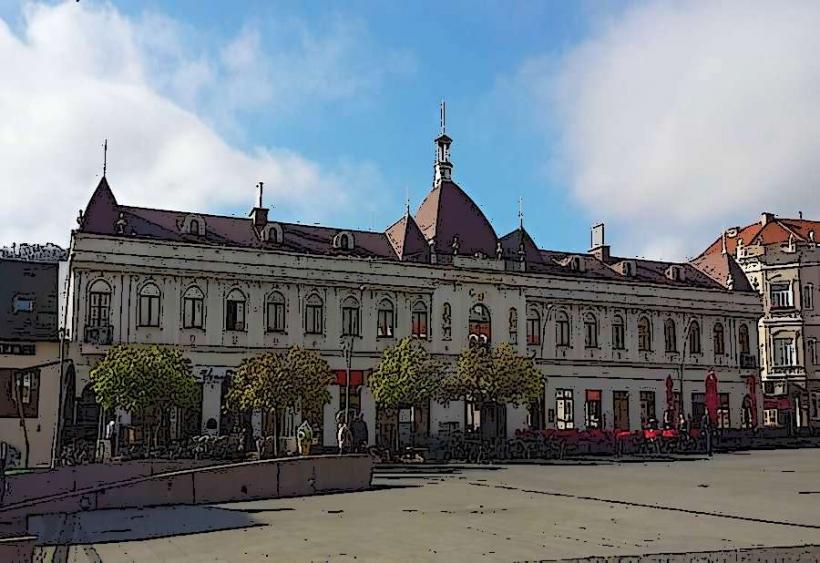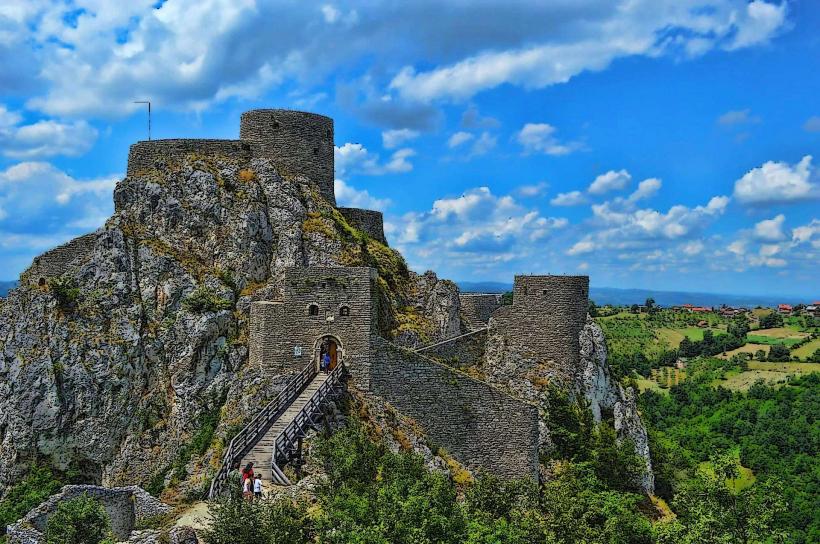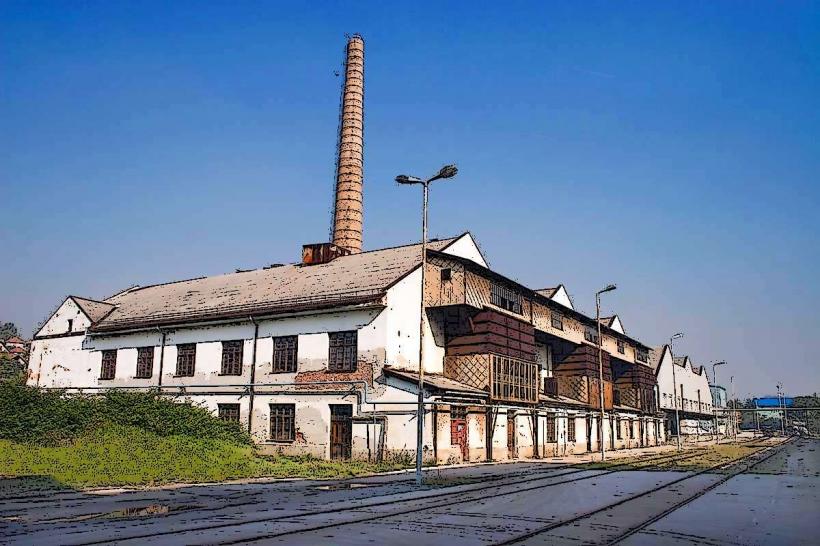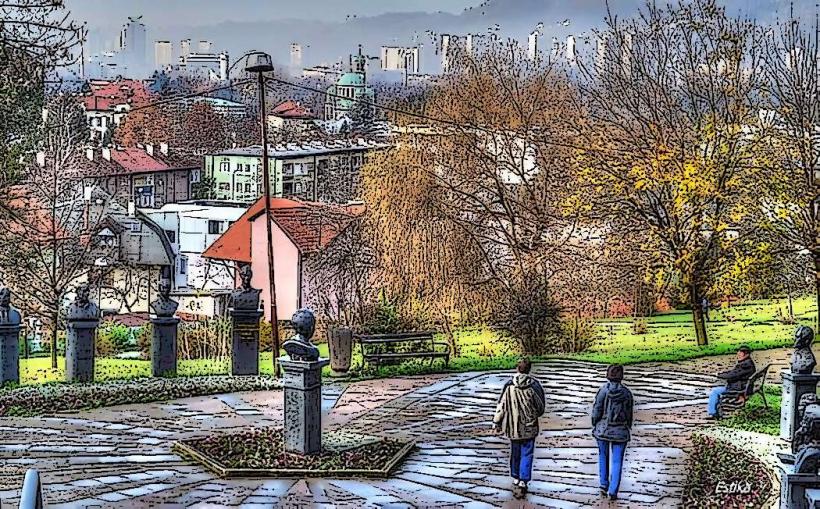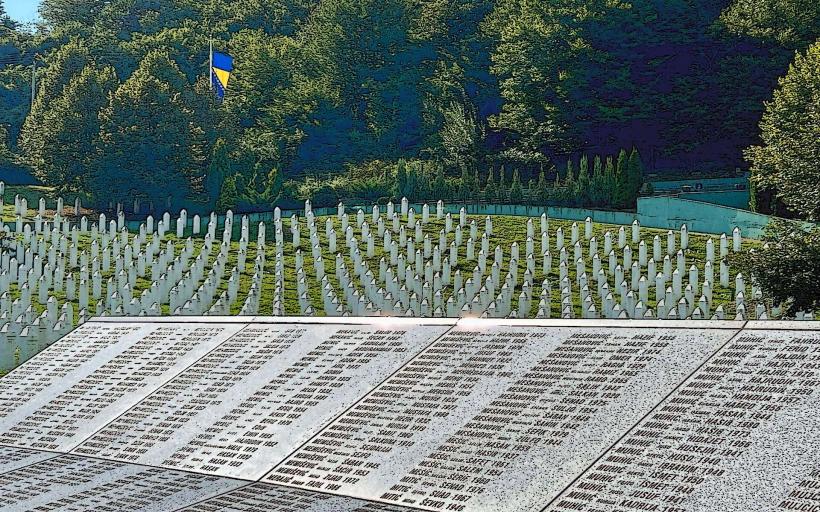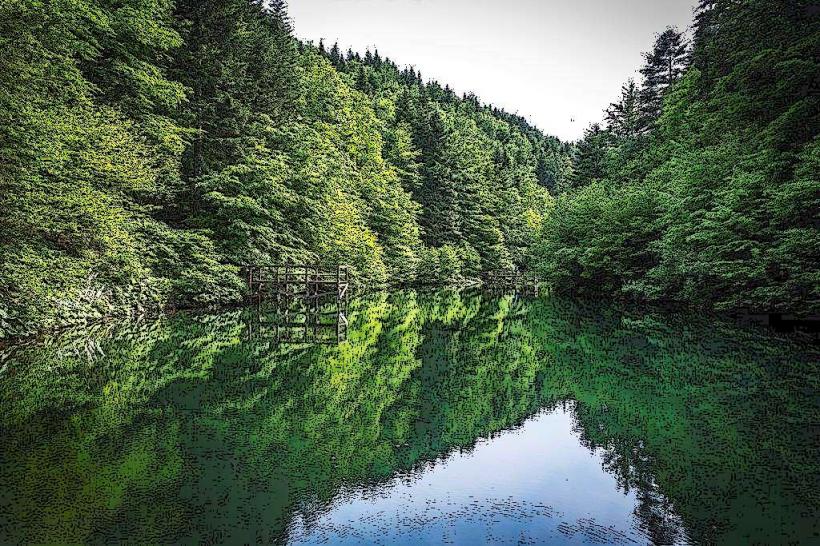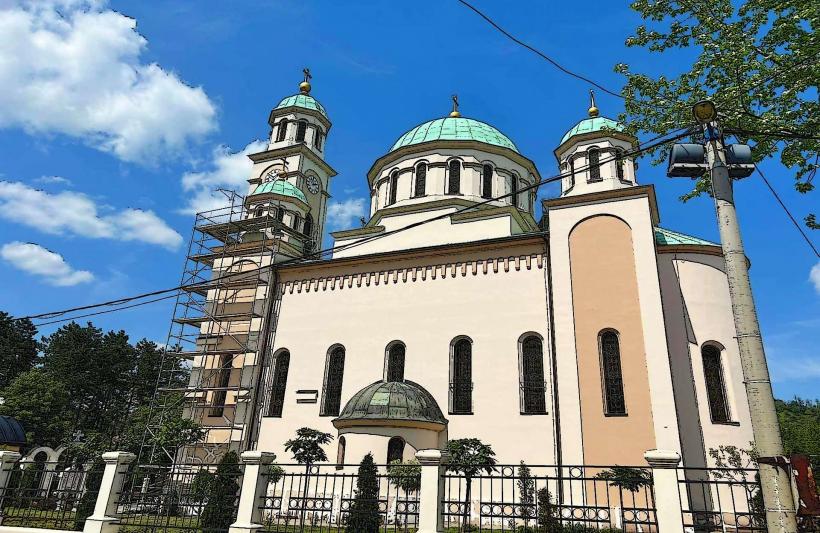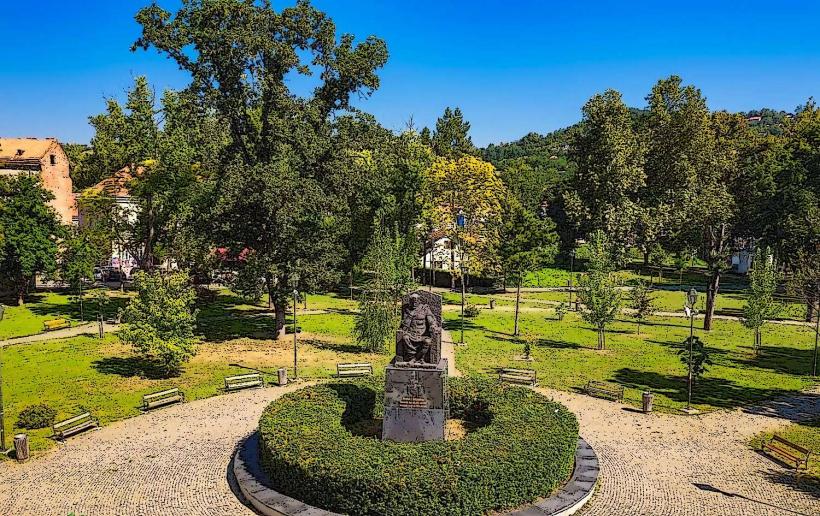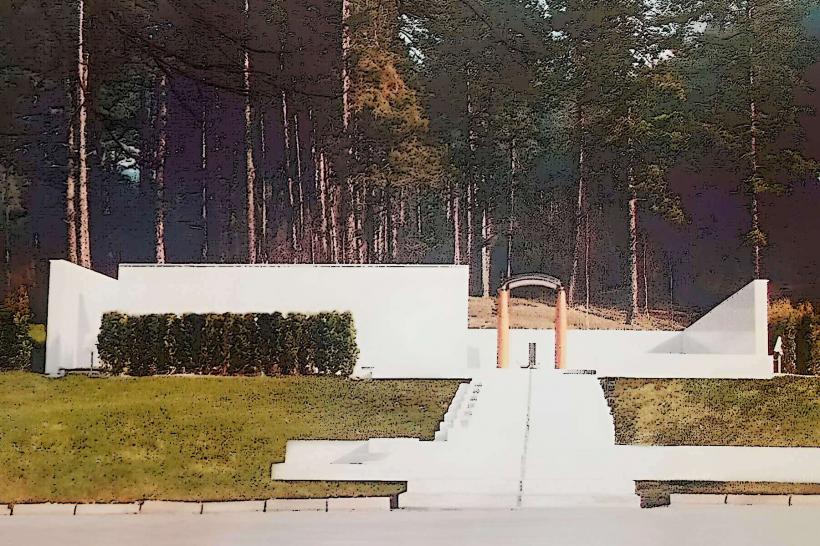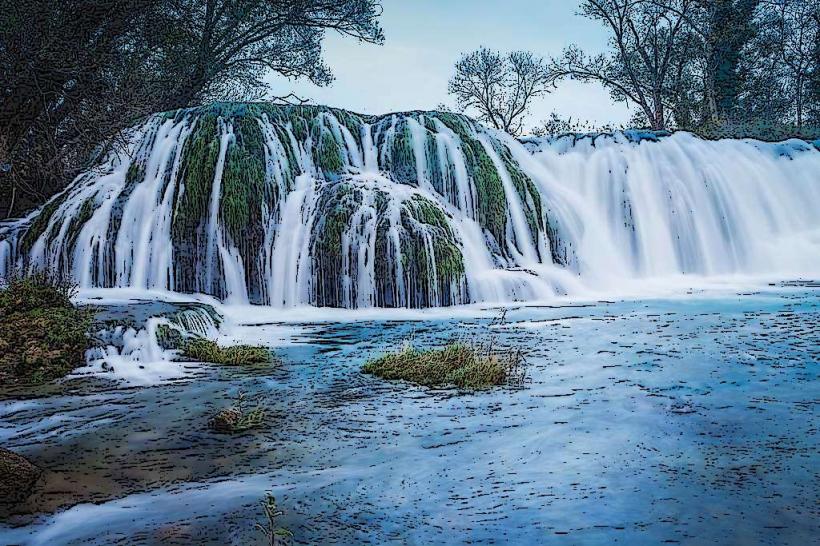Information
City: TuzlaCountry: Bosnia and Herzegovina
Continent: Europe
Tuzla is a vibrant city in northeastern Bosnia and Herzegovina, located in the Federation of Bosnia and Herzegovina entity. It is the administrative center of the Tuzla Canton and one of the most important urban centers in the country. Known for its rich history, cultural diversity, and significant industrial development, Tuzla has been a focal point of economic and social activity in the region for centuries.
Geography and Climate
Tuzla is situated in the Tuzla Basin, an area historically known for its salt deposits and surrounded by low hills and valleys. The city lies along the banks of the Tuzla River, which plays a significant role in both the natural landscape and the city's development. Tuzla’s geography contributes to its continental climate, characterized by hot summers and cold, snowy winters.
- Summer temperatures often exceed 30°C (86°F), with long, sunny days, while winter temperatures can drop below freezing, with snow common from December to February. The transitional spring and autumn seasons bring moderate temperatures and rainfall, contributing to the lush greenery that surrounds the city.
History
Tuzla has a long and storied history, dating back to prehistoric times. Its strategic location and natural resources have made it a focal point of various empires and cultures.
Ancient and Medieval History: Tuzla's name is derived from the Turkish word "tuz," meaning salt, reflecting its long history as a salt-producing area. Evidence of prehistoric settlements and Roman-era presence in the region has been discovered. The area's importance as a salt mining center dates back to Roman times and continued throughout the Ottoman period.
Ottoman Empire (1463–1878): Tuzla fell under Ottoman rule in the late 15th century and became a significant town in the empire due to its salt mines and position along trade routes. During the Ottoman period, the city’s economy was bolstered by salt production and trade, and Tuzla became an important administrative center within the empire. The Ottomans also introduced their distinctive architecture, such as mosques and public baths, that remain a part of the city’s cultural heritage today.
Austro-Hungarian Period (1878–1918): Following the Congress of Berlin, Tuzla became part of the Austro-Hungarian Empire. During this period, the city saw the construction of modern infrastructure, including railways, which connected Tuzla to other parts of Bosnia and Herzegovina and beyond. Tuzla's salt mines were modernized, and the city experienced industrial growth, with new factories being established.
Yugoslav Period (1918–1992): After World War I, Tuzla became part of the newly formed Kingdom of Yugoslavia and later the Socialist Federal Republic of Yugoslavia. The city's industrial base continued to grow, particularly in mining, manufacturing, and salt production. Tuzla’s chemical industry, which developed during this period, was particularly important to the local economy, and the city became one of the largest industrial centers in Bosnia and Herzegovina.
Bosnian War (1992–1995): Tuzla was one of the few cities in Bosnia and Herzegovina that was not heavily affected by the physical destruction of the war, though it was still deeply impacted by the ethnic and political turmoil. The city was known for being a multi-ethnic community, and during the war, Tuzla became a safe haven for many refugees. The city was targeted in several attacks, but it largely remained under the control of the Bosnian government forces throughout the conflict.
Culture and People
Tuzla is known for its ethnic diversity, with a mix of Bosniaks, Croats, and Serbs, as well as smaller communities of Jews and Roma. The population reflects the city’s historical role as a melting pot of different cultures and traditions.
Religion and Architecture: Tuzla is a city of religious diversity, with Islam (Bosniaks), Orthodox Christianity (Serbs), and Catholic Christianity (Croats) being the primary religions practiced. This diversity is reflected in the city’s architecture, with mosques, churches, and synagogues standing side by side. The Sultana’s Mosque, one of the oldest and most important Ottoman mosques in Tuzla, is a key landmark. Additionally, Catholic churches and Orthodox churches are scattered throughout the city, adding to Tuzla's cultural richness.
Cuisine: Tuzla's cuisine reflects the diverse cultural influences of the region, with traditional Bosnian, Ottoman, and Mediterranean flavors. Ćevapi, burek, sarma, and pita are some of the most popular dishes in Tuzla. The city is also known for its sweet pastries, especially tufahija (apples stuffed with sugar, walnuts, and cinnamon) and baklava. Salt-based dishes, such as soup and stew, are also traditional, reflecting Tuzla's long history with salt production.
Arts and Festivals: Tuzla has a lively cultural scene, with a number of museums, galleries, and theaters contributing to the city’s cultural heritage. The Tuzla City Theater is an important institution for performing arts, showcasing drama, dance, and music. Theater festivals and art exhibitions are regularly held, offering opportunities for both local and international artists to perform and display their work.
Tuzla also hosts a number of annual festivals, including the Tuzla Film Festival, which celebrates independent cinema, and the Tuzla Carnival, a colorful celebration of local culture with parades, music, and traditional dances.
Languages: The official language of Tuzla is Bosnian, though Serbian and Croatian are also commonly spoken. Bosnian is the primary language of communication, and the majority of the population speaks it, though Serbian and Croatian are mutually intelligible with Bosnian.
Economy and Development
Tuzla has long been an industrial city, with its economy traditionally driven by salt mining, chemicals, and heavy industry. Although Tuzla’s industrial base has experienced challenges, it remains one of the most important economic centers in Bosnia and Herzegovina.
Industry: Tuzla’s salt mines were the foundation of its early industrial growth, and the region is still known for its mining activities. The city also has a significant chemical industry, which includes the production of fertilizers, chemicals, and plastics. Tuzla's thermal power plants and coal mines are also vital parts of the economy, though the city has been working to diversify its industrial base in recent years.
Services and Trade: In addition to its industrial base, Tuzla has a growing services sector, including retail, banking, and information technology. Shopping malls, such as Tuzla City Mall, offer a range of goods and services to local residents, while the city's role as a logistics hub contributes to its overall economic development. Tuzla also has a growing tourism sector, with visitors drawn to its mineral springs, salt lakes, and nearby mountain ranges.
Agriculture: Agriculture plays a role in the region surrounding Tuzla, with fertile soil and a moderate climate allowing for the cultivation of fruits, vegetables, and grains. The region is known for its production of plums, apples, potatoes, and corn, as well as vineyards producing quality wine.
Education
Tuzla is home to several institutions of higher learning, including the University of Tuzla, one of the largest and most important universities in Bosnia and Herzegovina. The university offers a wide range of programs across various disciplines, including natural sciences, engineering, economics, and social sciences. The city's educational institutions contribute to Tuzla's growing reputation as an educational and research hub.
Transportation
Tuzla is well-connected to the rest of Bosnia and Herzegovina and neighboring countries through various transportation options.
Roads: Tuzla is a key road junction in Bosnia and Herzegovina, with major roads connecting it to Sarajevo, Zenica, and Mostar. The M-4 and M-17 highways provide vital links to other cities and regions.
Rail: Tuzla has a railway station, which provides connections to major cities in the region. Although rail transport is less significant than road transport, it remains an option for both passengers and freight.
Airports: Tuzla International Airport serves as the city’s primary gateway for air travel, offering both domestic and international flights, particularly to destinations in Europe. The airport's proximity to the city center makes it a convenient option for travelers.
Conclusion
Tuzla is a city that offers a mix of rich industrial heritage, natural beauty, and cultural diversity. Its long history of salt mining and chemical industry continues to shape its economy, while the city is working to diversify and develop new sectors. With its vibrant cultural life, educational institutions, and proximity to natural attractions, Tuzla is a city that offers both economic opportunity and quality of life.

